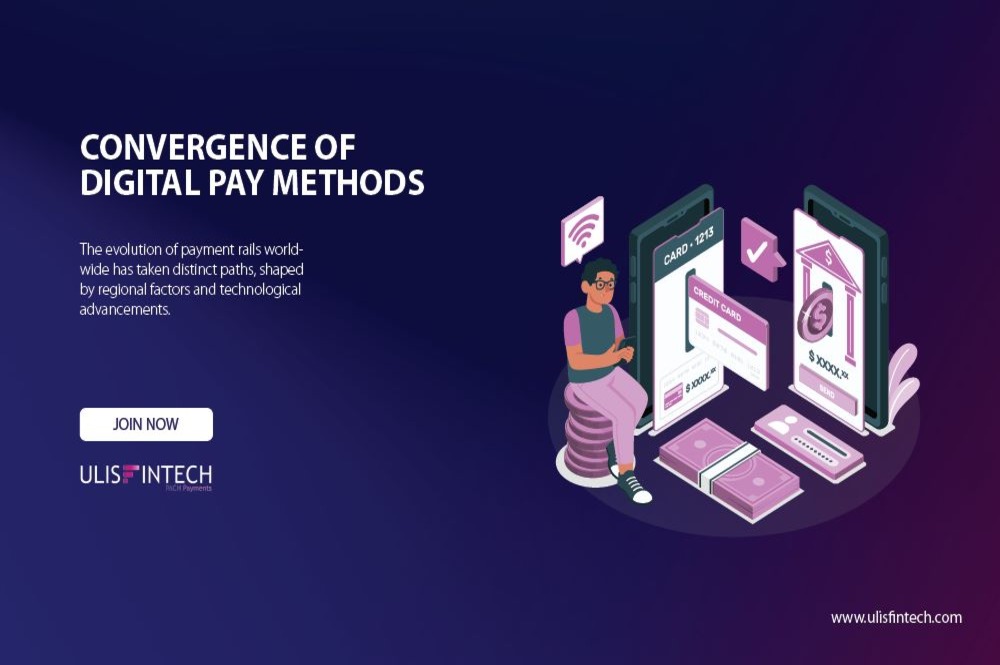The Future of Fintech: Building a Borderless Financial World
Jun 28, 2023 - 4 MINS READ

The world of finance and technology, known as fintech, is evolving at an unprecedented rate, reshaping traditional financial services. In this blog post, we will explore the concept of a borderless world in fintech and discover the exciting possibilities that lie ahead. As new technologies like blockchain, artificial intelligence, and big data disrupt the industry, the need for greater efficiency, transparency, and security has become increasingly apparent.
The Move Towards a Borderless Financial World:
Historically, financial services were limited by borders, with people needing to use different banks, invest in different markets, and navigate varying fees. However, fintech is enabling access to financial services from anywhere in the world, eliminating these geographical barriers. Two driving forces behind this transformation are the internet and the rise of mobile devices. The internet has enabled global connectivity and cross-border business transactions, while mobile devices have made financial services easily accessible on the go.
Transparency and Accountability:
After the financial crisis of 2008, there has been an increase in demand for transparent and responsible financial services. Technology is being used by fintech businesses to address this demand, ensuring accountability and transparency in their operations. In order to rebuild trust and confidence in the sector, this shift towards a more open financial system is an essential part of the global financial system.
Benefits and Challenges:
The move towards a borderless financial world offers several benefits. It simplifies saving, investing, and money management for individuals, reduces costs, and improves efficiency. Furthermore, it promotes financial inclusion by making services more accessible to those in developing countries. However, challenges do exist. Regulating globalized financial services becomes more complex, and the risk of fraud and cyber-attacks increases as digital transactions become more prevalent. Overcoming these challenges will be vital to ensure the success of a borderless financial ecosystem.
Making the World More Borderless:
Fintech is already making significant strides in creating a borderless financial world. Some examples include:
Cross-border payments: Fintech companies like Wise (formerly TransferWise) offer convenient and cost-effective solutions for sending money internationally, making it accessible to users in over 80 countries.
Investing: Platforms like Robinhood enable individuals to invest in global markets without paying commissions, democratizing access to investment opportunities.
Lending: Peer-to-peer lending platforms such as LendingClub provide individuals, including those with poor credit, the opportunity to secure loans directly from investors, bypassing traditional banks.
The Future of Fintech:
Looking ahead, the future of fintech is filled with exciting possibilities:
Blockchain revolutionising transactions: The way we store and transmit money will change as a result of blockchain technology. It is perfect for cross-border payments, remittances, and trade finance because of its distributed ledger technology, which enables safe, transparent, and tamper-proof transactions.
Enhancing personalisation with artificial intelligence: By automating jobs like fraud detection and customer support, artificial intelligence will free up resources for more strategic efforts. Additionally, it would personalise financial services by offering specialised lending options and investing guidance.
Decision-making is improved by big data analysis: Big data analysis will improve risk management and decision-making. Financial institutions can spot dangers and opportunities and take well-informed choices by evaluating client transactions and market trends.
The future of fintech holds immense potential for transforming global financial transactions. By eliminating cross-border barriers, fostering financial inclusion, embracing decentralized finance, enhancing security and privacy, and promoting collaboration between traditional institutions and fintech innovators, we can create a truly borderless fintech world. Addressing challenges such as regulation, cybersecurity, and data privacy will be vital to ensuring a sustainable and inclusive future. As technology continues to advance, it is our responsibility to shape the financial landscape in a way that benefits individuals and societies worldwide.






